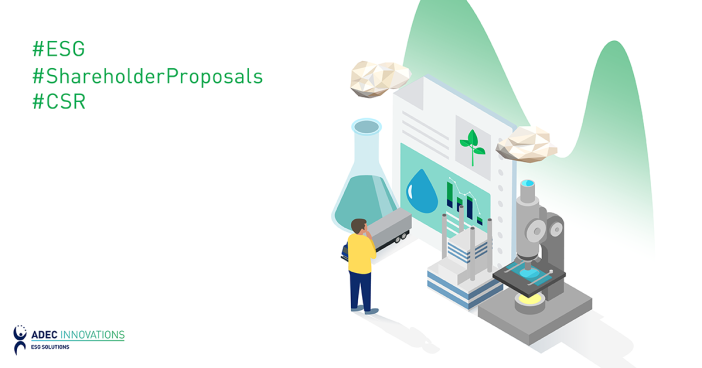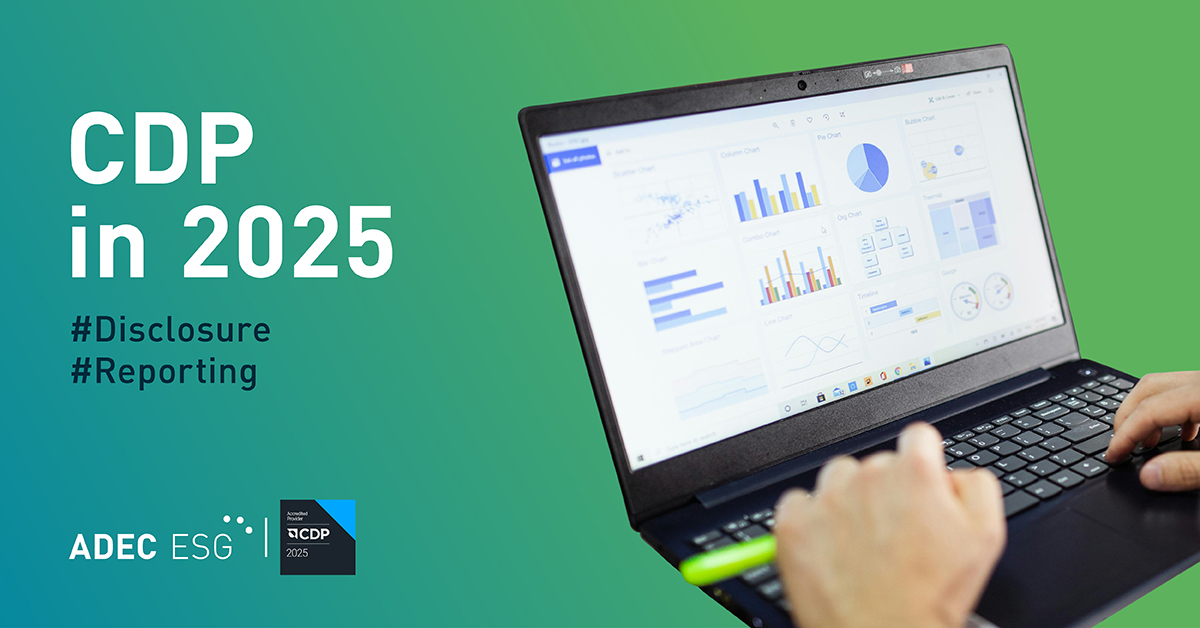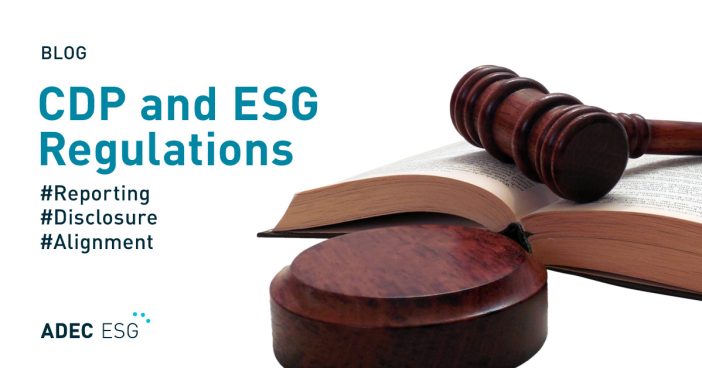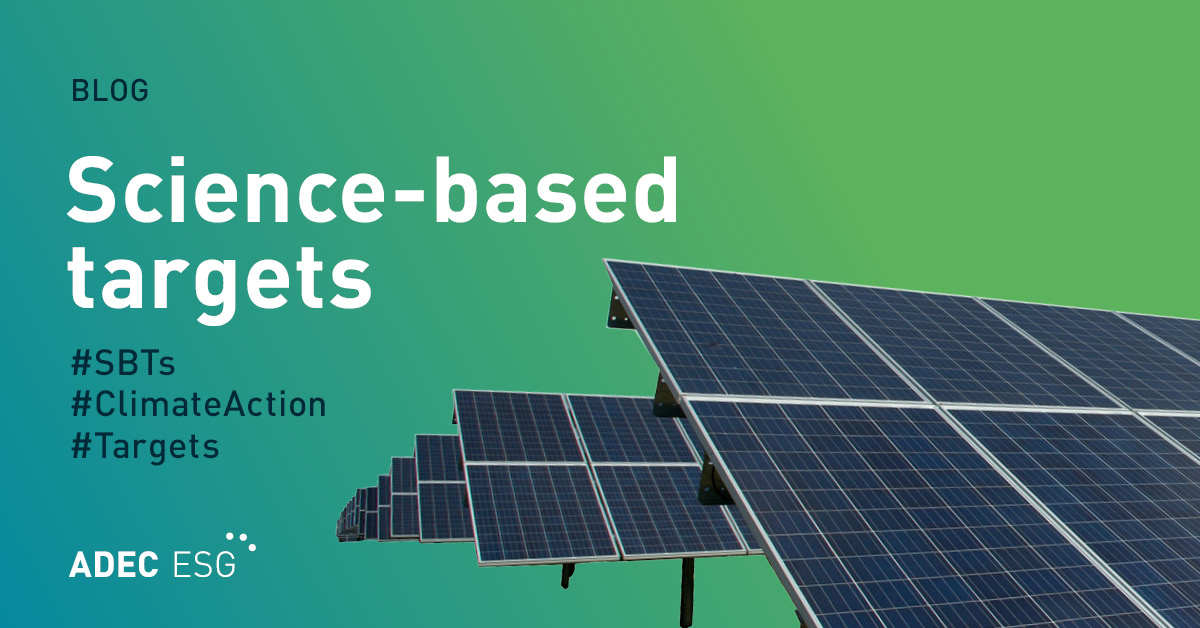The ADEC ESG Solutions team was invited to speak at a live web event earlier this year focusing on ESG shareholder proposals, ESG trends, and the impact of changing rules and a shift in investor interests. Hosted by global law firm Katten and joined by representatives from DF King and Solebury Trout, the webinar presented a great opportunity to team up with other expert voices who are emphasizing environmental, social, and governance (ESG) topics in the legal space.
Our section of the talk focused on the mechanics of these ESG shareholder proposals. What’s driving this push, and how can companies take action to respond to these proposals and implement internal and external change?
We find that there are three main drivers involved—and therefore three main topics that companies should consider integrating into their ESG and overall business strategy:
- Risk assessment and the TCFD recommendations
- Science-based targets and scope 3 emissions
- Low-carbon transition plans
Risk assessment and the TCFD recommendations
The TCFD (Task Force on Climate-related Financial Disclosures) recommendations are primarily focused on risk—and this isn’t the first time we’ve covered this topic.
Investors put a lot of value in your ability to assess and manage your risks. Organizations that manage both immediate and long-term climate risks put themselves in a much better position to remain competitive and resilient over time. Therefore, it’s important to demonstrate that you are integrating climate risk assessment into key components of your business—like strategy, governance, risk management process and policies, and target-setting.
One example of risk is transitional risk, which is risk that follows shifts in the global economy or public sentiment—such as the current shift towards a low-carbon economy, which we’ll discuss in a moment.
Science-based targets and scope 3 emissions
Investors are beginning to shine a spotlight on science-based targets (SBTs), and now, the SEC is opening the door for shareholder proposals that call for SBTs. If you already have emissions targets in place, it would be prudent to consider developing them further and applying for approval through the Science Based Targets Initiative (SBTi).
What are SBTs? At their heart, science-based targets are GHG inventory targets on your operations and a commitment to align with the 1.5-degree scenario reduction targets outlined in the Paris Agreement. Targets vetted by the SBTi go through a specific submission and approval process and are often more rigorous and empirical than an individual target a company might set for itself.
SBTs are made up of separate inventories for scope 1, 2, and 3 emissions. While scope 1 and 2 emissions are generally involved with your direct operations, scope 3 emissions are those that can be traced both upstream and downstream. For companies with large global value chains, these can often be difficult to trace, despite overwhelming evidence that they make up the majority of most companies’ overall emissions. For this reason alone, tracking and managing scope 3 emissions are a crucial part of setting and achieving science-based targets.
Having an SBT in place calls for consistent, reliable, and accurate GHG inventories. In turn, meeting your targets also involves considerable effort gaining internal buy-in and engaging your supply chain in your climate goals. This is the driver for many investors calling for SBTs—because organizations that set and meet these ambitious targets are demonstrating careful, thoughtful management of their operations and the impact those operations have on the world around them.
Low-carbon transition plans
Many investors are also beginning to welcome shareholder proposals that address gaps in a company’s approach to energy transition. These investors want to know whether or not you are ready for a low-carbon future, how you are preparing your business for this transition, and what factors are a part of those decisions.
Low-carbon transition plans require both careful consideration of risks and a stronghold on climate data management. Integrating the TCFD recommendations into your policies and developing science-based targets may help you as you begin to develop a low-carbon transition plan. The risk- and opportunity-related nature of both these initiatives force companies to take a careful look at their relationships with climate-related factors and how those relationships may change in the coming years.
It’s also important to identify communication strategies around how you will prioritize and strategize your low-carbon transition plan. Shareholders recognize the reality of these climate-focused transitional risks and want to see that you’re taking a serious, strategic look at major trends happening in the ESG space.
ESG shareholder proposals present many opportunities for you to engage people in different parts of your organization as well as different stakeholders. The key point here is to recognize the value of connectivity: every aspect of your organization, from its people to its strategies, interact and are connected.
Your Sustainability Journey has a lot of moving parts and may feel hectic and difficult to navigate. Understand that your journey is unique to your organization and that each part and stage are interconnected. It is still possible to organize your journey in a way that feels linear, streamlined, and goal-oriented, allowing you to be prepared for ESG shareholder proposals even before they arise and to meet any future risks and challenges head-on.
ADEC ESG Solutions helps companies lead the charge on sustainability and climate action. Our team of experts can support you in developing science-based targets, GHG inventories, low-carbon transition plans, disclosure in line with the TCFD recommendations, and more. Contact us to learn more about how we can support your ESG goals with our suite of customizable services.




